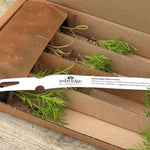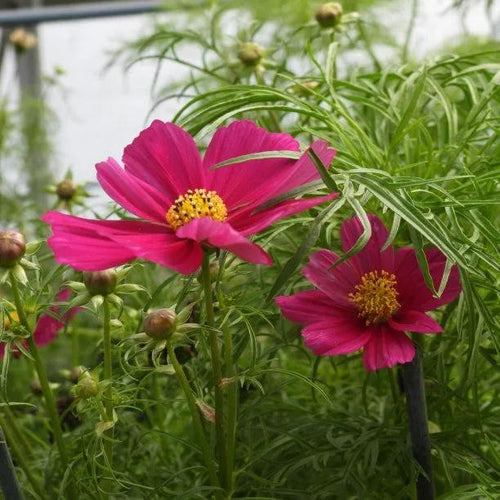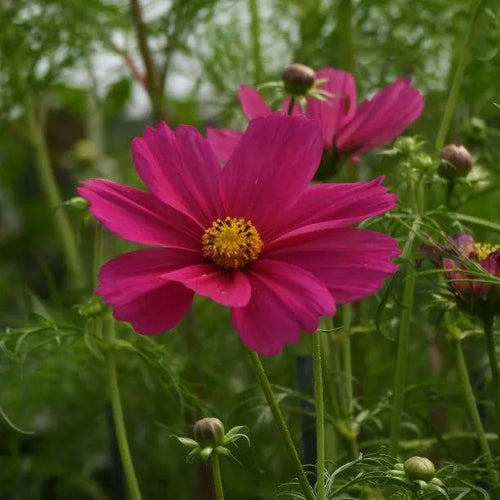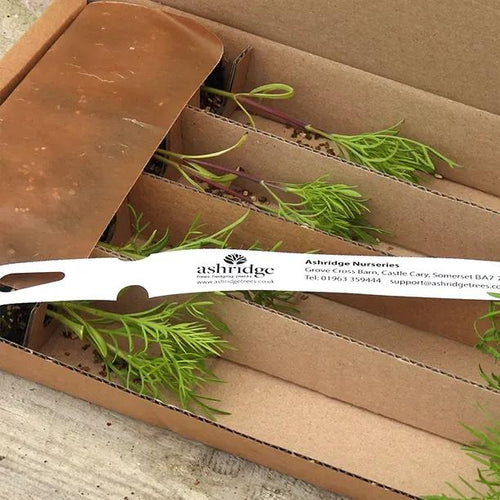About Sonata Carmine Cosmos Plants
Sonata Carmine Cosmos Plants
Cosmos Sonata Carmine is around 40-60cm tall and so is much smaller and tidier than the average 100cm Cosmos bipinnatus. It provides the deep pink - Carmine is a good name - of the Sonata range. We sell three, Sonata White and Sonata Pink being the other two all of which are dwarf Cosmos that are ideal for smaller gardens, window boxes and container gardening in general. It's certainly the best dark pink Cosmos for your patio, terrace, balcony or roof-garden. Browse our range of ready to plant cosmos seedlings.
We think cosmos look much better planted in numbers rather than in one's and two's. As a drift of maybe a dozen plants, in a single colour or mixed if you prefer, this variety is a sight for sore eyes.
Belying their size, Sonata Cosmos produce quite remarkable numbers of flowers almost without catching breath from May until November. These are smaller plants than most other Cosmos - such as the Double Clicks - so the flower stems will be shorter than those produced by taller varieties but, although we have not tested this scientifically, they seem to produce about as many flowers.
Cosmos Sonata Carmine Features:
- Half-hardy Annual
- Colour: Deepest pink with gold stamens
- Height: 45-50cm
- Planting Months: April - June/July
- Flowering: May - November
- Plant Spacing: 20-25cm













 Secure, One-Tap Checkout
Secure, One-Tap Checkout
 Hand Picked, Delivered to Your Door!
Hand Picked, Delivered to Your Door! 1 Year Bareroot Guarantee
1 Year Bareroot Guarantee




